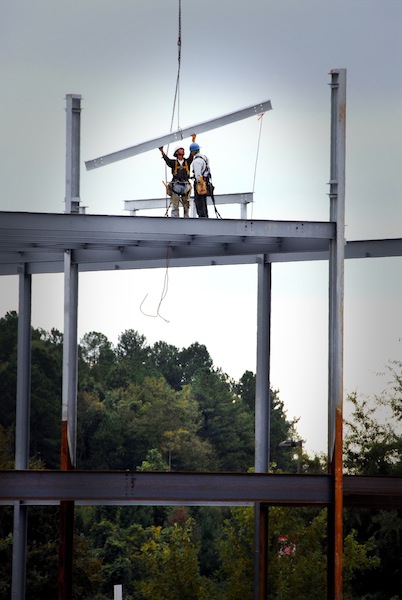
Business
News
Time buffers unnecessarily extend construction project completion
September 5, 2013 | By Anthony Capkun

September 5, 2013 – Research from North Carolina State University identifies factors causing construction site managers to schedule more time than necessary for specific tasks. An understanding of these factures may help industry complete construction projects more quickly.
At issue is the time buffer: the difference between how long it should take to accomplish a task based on optimum productivity, and how long ones thinks it will take in the real world. Things can go wrong on any job so, to account for these unforeseen events, construction foremen add time buffers into their task schedules.
“This is important, because construction projects—like building a school or hospital—can consist of thousands of tasks,” explained Dr. Min Liu, an assistant professor of civil, construction and environmental engineering at NC State and senior author of a paper on the research. “If every site manager builds a small buffer into every task, it can come to thousands of hours.”
The researchers analyzed survey results of 180 construction industry professionals from across the United States, and found a number of factors contributing to time buffers.
“We did this study to better understand how people determine when to add time buffers and the length of those time buffers,” Liu says. “This helps us determine how much of a time buffer is actually necessary, and will help us find ways to minimize wasted time in construction projects.”
Liu explained project managers can use the factors they’ve identified to prioritize their review of construction tasks and target issues related to time buffers. The paper, Application of Time Buffers to Construction Project Task Durations, is published online in the Journal of Construction Engineering and Management.
Print this page